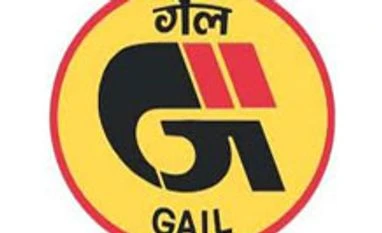Subsidy relief boosts GAIL net
)
A cap on its fuel subsidy at Rs 1,400 crore helped state-owned natural gas and petrochemicals producer GAIL India's net profit rise 31 per cent year-on-year to Rs 1,679 crore for the three months ended December. Net sales rose 28 per cent year-on-year to Rs 15,981 crore.
A consensus estimate of seven brokerage firms had expected net sales and profit to grow 20.8 per cent and one per cent, respectively.
The company had paid the subsidy in the first half of the financial year. The company also gained from the sale of its shares in China Gas. There are talks of taking the subsidy burden off GAIL.
Also Read
GAIL sold 60 million shares of the 210 million it holds in China Gas. "The net realisation due to sale was Rs 340 crore. We bought those shares at around $1.5 a share and sold it at $8.2. We still hold three per cent stake in China Gas. Due to this deal, the profit after tax would have increased by nine per cent," Chairman and Managing Director B C Tripathi said.
Sales of natural gas, its largest division, jumped 31 per cent in the quarter to Rs 13,287 crore, while profits from the segment before interest and taxes jumped 70 per cent to Rs 505 crore. This was despite lower natural gas sales and transmission throughput in its pipelines.
Lower subsidy on cooking fuels increased revenue from LPG and liquid hydrocarbons 51 per cent year-on-year to Rs 1,933 crore in the quarter. Net profit from this segment was up 28 per cent year-on-year to Rs 762 crore in the quarter. Earnings from its unregulated business of petrochemicals were flat, while profit from it before interest and taxes fell 24 per cent year-on-year to Rs 334 crore in the quarter.
The biggest concern for the company remains poor pipeline use. “The utilisation of Dabhol and Dahej pipeline projects are below 10 per cent, while our average pipeline utilisation is at 45 per cent,” Tripathi said. It handled eight loads of cargoes in December and expects to carry another seven during the March quarter, taking the total to 26 shiploads for the financial year. “We are looking to import 32-33 cargoes of LNG (liquefied natural gas) for the coming financial year, depending on demand,” he added.
“High prices had affected our demand and our Dabhol terminal is having a capacity utilisation of only one million tonnes a year (mtpa) against an expected 3.5 mtpa.” Apart from this, policy uncertainty on cooking fuel subsidy is likely to keep the GAIL stock rangebound.
More From This Section
Don't miss the most important news and views of the day. Get them on our Telegram channel
First Published: Jan 30 2014 | 12:42 AM IST
